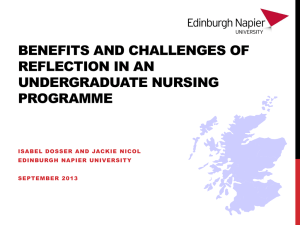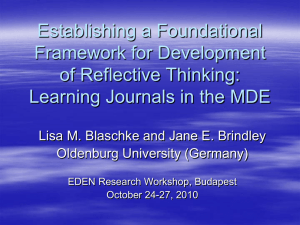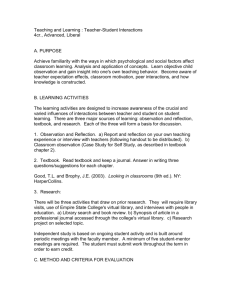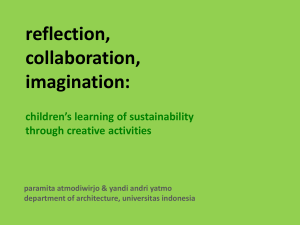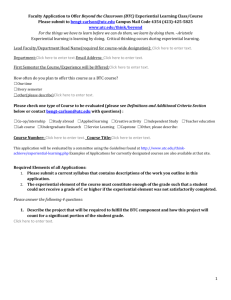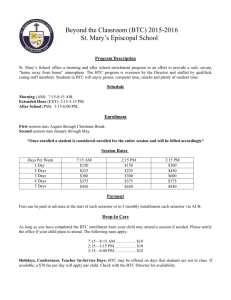How will your course learning goals connect with at least three of the
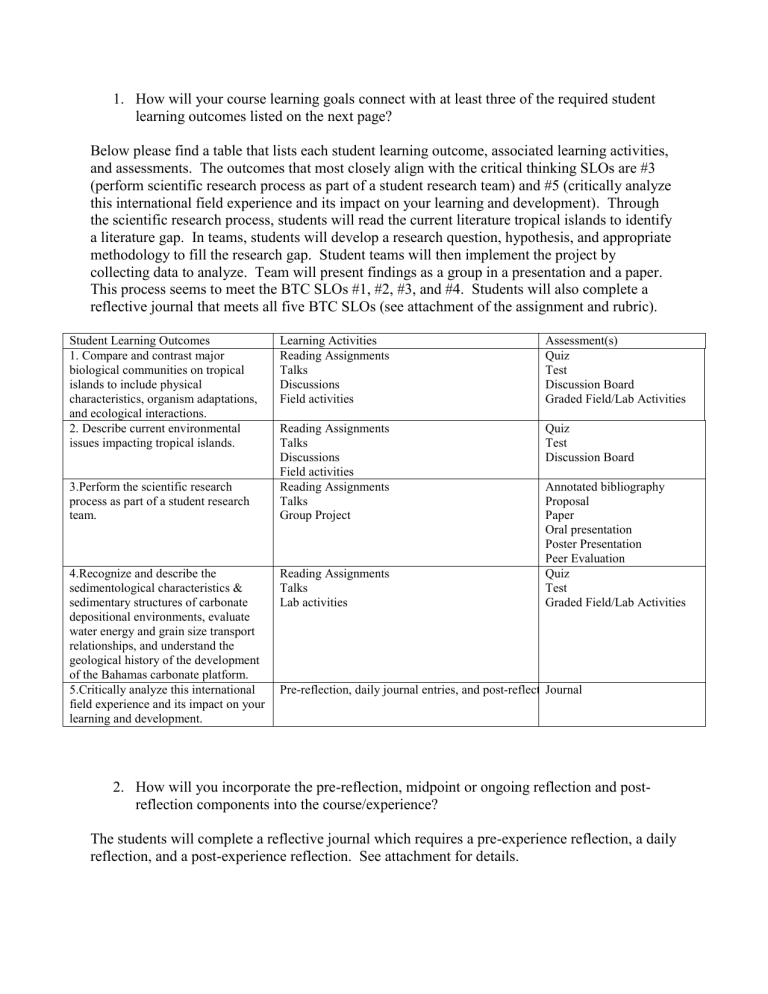
1.
How will your course learning goals connect with at least three of the required student learning outcomes listed on the next page?
Below please find a table that lists each student learning outcome, associated learning activities, and assessments. The outcomes that most closely align with the critical thinking SLOs are #3
(perform scientific research process as part of a student research team) and #5 (critically analyze this international field experience and its impact on your learning and development). Through the scientific research process, students will read the current literature tropical islands to identify a literature gap. In teams, students will develop a research question, hypothesis, and appropriate methodology to fill the research gap. Student teams will then implement the project by collecting data to analyze. Team will present findings as a group in a presentation and a paper.
This process seems to meet the BTC SLOs #1, #2, #3, and #4. Students will also complete a reflective journal that meets all five BTC SLOs (see attachment of the assignment and rubric).
Student Learning Outcomes
1. Compare and contrast major biological communities on tropical islands to include physical characteristics, organism adaptations, and ecological interactions.
2. Describe current environmental issues impacting tropical islands.
3.Perform the scientific research process as part of a student research team.
4.Recognize and describe the sedimentological characteristics & sedimentary structures of carbonate depositional environments, evaluate water energy and grain size transport relationships, and understand the geological history of the development of the Bahamas carbonate platform.
5.Critically analyze this international field experience and its impact on your learning and development.
Learning Activities
Reading Assignments
Talks
Discussions
Field activities
Reading Assignments
Talks
Discussions
Field activities
Reading Assignments
Talks
Group Project
Reading Assignments
Talks
Lab activities
Assessment(s)
Quiz
Test
Discussion Board
Graded Field/Lab Activities
Quiz
Test
Discussion Board
Annotated bibliography
Proposal
Paper
Oral presentation
Poster Presentation
Peer Evaluation
Quiz
Test
Graded Field/Lab Activities
2.
How will you incorporate the pre-reflection, midpoint or ongoing reflection and postreflection components into the course/experience?
The students will complete a reflective journal which requires a pre-experience reflection, a daily reflection, and a post-experience reflection. See attachment for details.
3.
How will you incorporate the additional criteria for the type of course (requirements shown on the back of this form)?
The reflective journal will also serve as their chronological log of activities.
4.
Describe the project that will be required to fulfill the BTC component.
As already described, the student research project and the reflective journal are the projects required to fulfill the BTC component.
CRITICAL REFLECTION JOURNAL INSTRUCTIONS (100 pts)
Being able to articulate your study abroad experience in a meaningful way is beneficial to both you and your peers. Your study abroad experience will not only add to who you are and how you see the world but also has the potential to add to how others see you. While your friends and family will be interested in looking at your pictures and hearing what you did abroad, the professional world will want to know why. Why did you go? What did you learn? What did it mean to you? To capture responses to these questions, you will be writing a critical reflection journal throughout this course. This journal will include the following:
1.
A pre-experience reflection. (15 points). Turn in on Wednesday, May 22 nd for feedback.
What do you think this experience is going to be like?
What do you want to learn?
What skills do you bring to this experience?
How will you deal with problems that might arise through this experience?
2.
Daily reflection entries. (70 points; 14 days * 5 points per day).
What did you do today? What assumptions did you have about the experience?
How do you feel about it? What did it mean to you? What did you learn?
What skills did you need? Were there skills required that you haven’t developed yet?
How did you deal with problems that came up? What might you do differently next time?
3.
A post-experience reflection. (15 points)
What was this experience like? How was it different from what you thought it would be?
Did you learn what you wanted to learn? What other things did you learn? Are these important to your UTC experience and future career?
What skills did you develop during this experience?
Are you satisfied in the way that you approached problems that came up? If not, how might you approach problems differently in the future?
This should be submitted as a single assignment in a bound journal by Friday, June 21 st .
The journal will be assessed with the following rubric:
Critical
Reflection
0-1 points 2 to 3 points 4 to 5 points
Integration Provides no clear connection between the experience and the learning
Provides minimal and/or unclear connection between the experience and the learning
Provides thorough and very clear connection(s) between the experience and the learning
Relevance
Accuracy
Fails to keep the discussion specific to the question prompts and learning
Much of the discussion is not related to the question prompts and the learning
Consistently makes inaccurate statements and/or fails to provide supporting evidence for claims
Makes inaccurate statements and/or supports few statements with evidence
Discusses learning that addresses the question prompts, is relevant, and keeps the discussion well-focused on the learning
Consistently makes statements that are accurate and wellsupported with evidence
Clarity
Precision
Consistently fails to provide examples, to illustrate points, to define terms, and/or to express ideas in other ways
Ocasionally provides examples, illustrates points, defines terms, and/or expresses ideas in other ways
Consistently provides examples, illustrates points, defines terms, and/or expresses ideas in other ways
Consistently fails to provide specific information, descriptions, or data
Occasionally provides specific information, descriptions, or data
Consistently provides specific information, descriptions, or data


